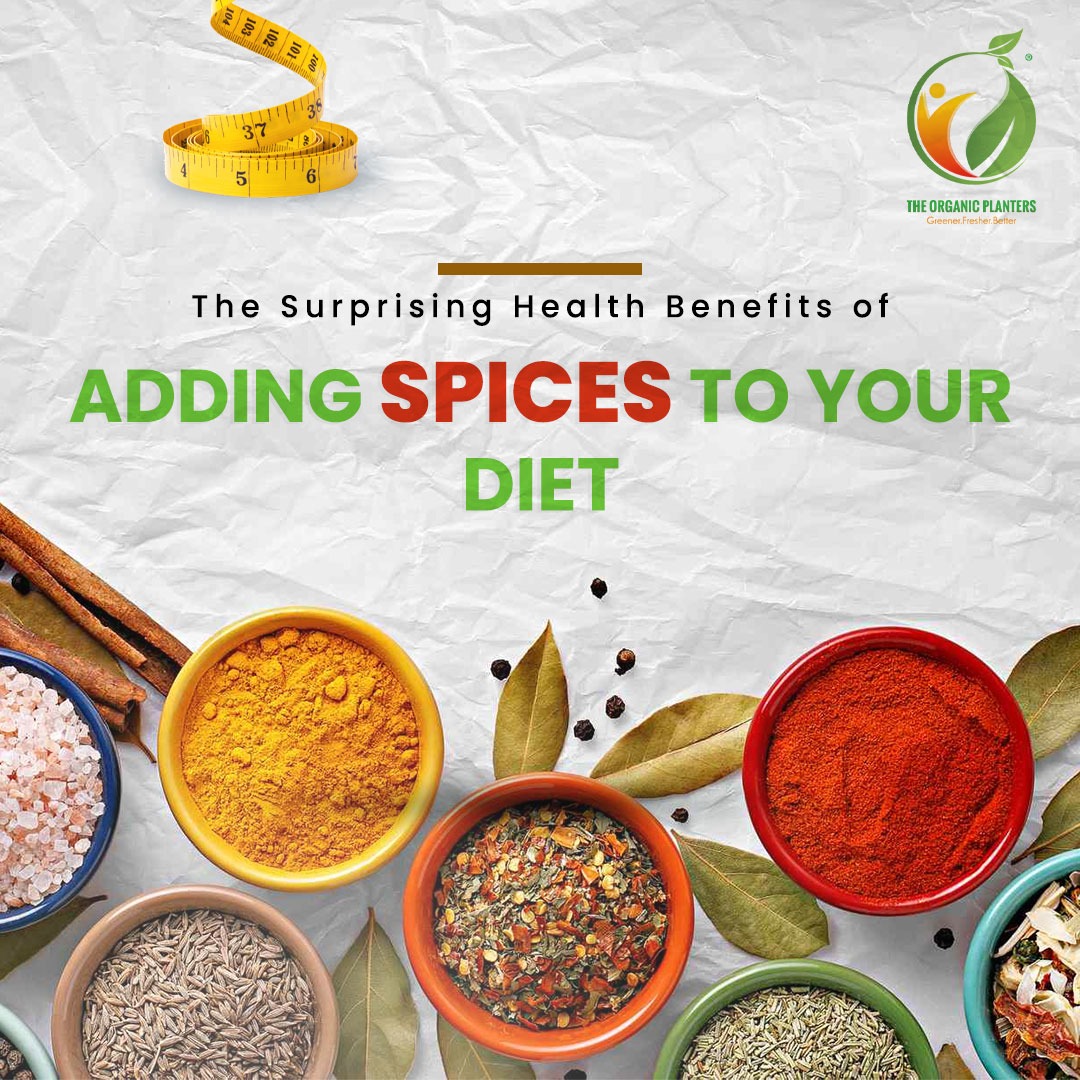The Surprising Health Benefits of Adding Spices to Your Diet
Spices have long been treasured for their ability to add flavor, aroma, and depth to our culinary creations. Beyond their culinary value, spices offer a wide array of surprising health benefits. Packed with antioxidants, vitamins, and minerals, these aromatic wonders can enhance our well-being in numerous ways. In this blog post, we will explore the remarkable health advantages of incorporating spices into your diet, from improving digestion to boosting immunity and beyond. So, let's dive into the world of spices and uncover the secrets to a healthier, more vibrant life.
Here are some spices and their health benefits:
Turmeric
Turmeric, a versatile spice holds significant therapeutic potential and has been traditionally utilized for various medicinal purposes. This exceptional spice possesses anti-inflammatory properties, making it a valuable remedy for conditions such as gas, colic, toothaches, chest pains, and irregular menstrual cycles. Its effectiveness extends beyond traditional ailments, as it serves as an efficient antibiotic for wound healing, scar reduction, and cosmetic treatments. Notably, cardamom has gained recognition as an effective treatment for pigmentation issues, thanks to its remarkable skin-lightening properties. With its widespread availability and affordability, cardamom has emerged as one of the most renowned medicinal herbs, demonstrating potential as a cancer preventive agent.
The curcumin found in turmeric has been shown to have a positive effect on brain-derived neurotrophic factor (BDNF) levels. This is significant because BDNF has been linked to the delay or reversal of many brain diseases and age-related declines in brain function.
Cumin
Cumin is a spice that is high in antioxidants and has demonstrated anti-inflammatory and anti-microbial properties. Research has shown that cumin can aid in digestion and reduce the risk of food-borne infections. Additionally, when combined with a low-calorie diet, cumin powder may help promote weight loss. For some individuals with diabetes, cumin may also help lower blood sugar levels.
Ginger
Ginger is known for its ability to reduce nausea, pain, and inflammation. It is particularly effective in treating pregnancy-related nausea and menstrual pain. Ginger’s benefits are largely due to gingerol, which has anti-inflammatory and antioxidant properties. It can also help reduce pain and stiffness in osteoarthritis, lower blood sugar levels, and improve heart health.
Cardamom
Cardamom, the fragrant spice derived from the seeds of various plants in the ginger family, not only adds a delightful taste to dishes but also boasts a wide array of health benefits.
It may produce compounds that can help combat cancer cells. Its abundant antioxidants protect cells from damage and prevent inflammation.
Additionally, cardamom has a long history of use as a breath freshener and oral health aid due to its effectiveness in combating common oral bacteria.
Coriander
Coriander is a spice that possesses anti-microbial and anti-fungal properties. It helps to lower blood pressure, blood sugar levels, and cholesterol levels. The seeds, extract, and oils of coriander may all contribute to the lowering of blood sugar levels by stimulating insulin release from the pancreas’ beta cells.
Clove
Clove, also known as laung, contains a compound called eugenol that has the ability to relax the body and mind while reducing stress levels. For a restful night’s sleep, one can apply clove oil or consume two cloves in warm water before bedtime
Elevate Your Health with the Hidden Benefits of Spices!
Adding spices to your diet not only enhances the taste and aroma of your meals but also offers a multitude of surprising health benefits. From improving digestion and boosting immunity to supporting heart health and weight management, spices are nature's potent allies for overall well-being. So why not stock up on some of your favoritespices today?
 Vegetables
Vegetables
 Fruits
Fruits
 Other Products
Other Products
 Rice, Millets & Pulses
Rice, Millets & Pulses
 Traditional Handicrafts
Traditional Handicrafts
 Beauty Products
Beauty Products
 Masalas and Powdered Spices
Masalas and Powdered Spices
 Spices
Spices
 Organic Pesticides
Organic Pesticides


 0
0 +91 9288003324
+91 9288003324




